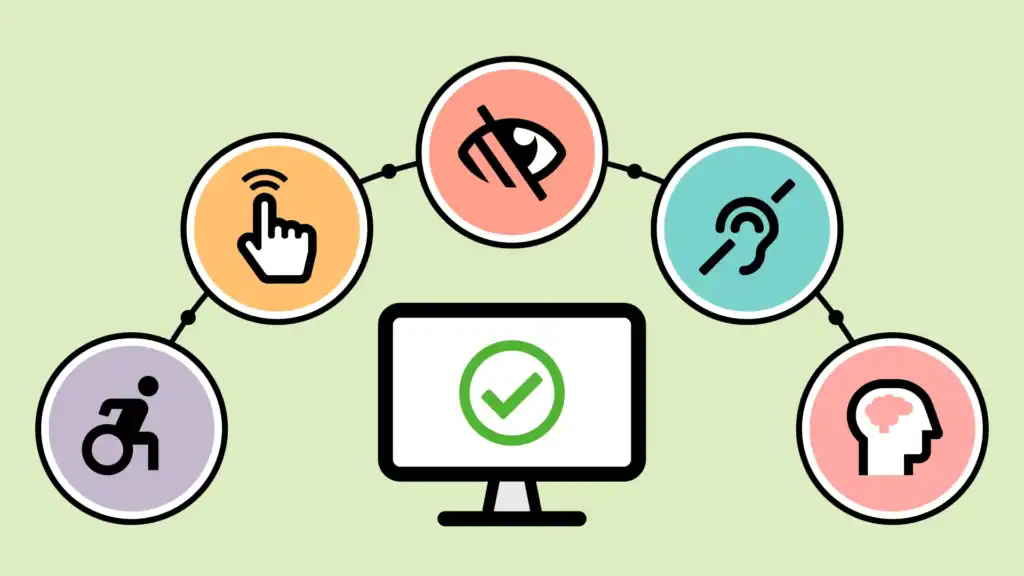As the world becomes more inclusive, the need for accessible housing has never been greater. People with disabilities represent a significant portion of the population, and their specific housing needs often go unmet in traditional real estate systems. For these individuals, finding homes that accommodate their needs—whether physical, sensory, or cognitive—can be a challenging and time-consuming process.
Multiple Listing Service (MLS) platforms, which are the backbone of real estate listings in many markets, have the potential to significantly improve the experience for people with disabilities by integrating specialized accessibility filters. These filters would allow potential buyers or renters to find homes that meet their specific accessibility needs without having to manually sift through thousands of listings.
This article explores the importance of integrating accessibility features into MLS platforms, how this can enhance the real estate experience for people with disabilities, and the benefits for the real estate industry as a whole.
Why Accessibility Matters in Real Estate
For individuals with disabilities, accessibility is more than just a feature—it’s a necessity. Disabilities come in many forms, including mobility impairments, visual impairments, hearing impairments, and cognitive impairments. Accessible housing can mean different things depending on the type of disability. However, common accessibility features include:
- Wheelchair-accessible ramps and doorways for those with mobility impairments.
- Elevators and wider hallways for easier movement within multi-story buildings.
- Visual aids, like Braille signs or high-contrast colors for people with vision impairments.
- Hearing assistance technologies, like visual alarms or vibration-based systems, are for individuals who are deaf or hard of hearing.
- Cognitive-friendly layouts that are easy to navigate for people with cognitive disabilities.
For people with disabilities, finding homes that meet these needs is often a frustrating experience, as most listings don’t specifically highlight these features. This is where MLS platforms come into play.
The Role of MLS in Enhancing Accessibility
MLS platforms serve as centralized databases of property listings and are the go-to tools for real estate professionals and buyers. By integrating accessibility features into MLS systems, real estate professionals can provide a more inclusive service, and individuals with disabilities can more easily find homes that meet their specific needs.
Here are some of the ways MLS platforms can integrate accessibility filters to make the search process easier and more efficient:
Key Accessibility Filters to Include in MLS Platforms

1. Wheelchair Accessibility
For individuals with mobility impairments, finding properties that are wheelchair accessible is essential. MLS platforms can allow users to filter for:
- Ramps: Homes with ramps instead of stairs at the entrance.
- Wide doorways and hallways: Ensuring that rooms and entryways are large enough to accommodate a wheelchair.
- Accessible bathrooms: Featuring spacious, accessible showers, higher toilets, and grab bars.
- Elevators: In multi-story buildings, having an elevator with appropriate capacity and accessibility features.
These filters can give users a quick and efficient way to view homes that meet the specific needs of those who use wheelchairs or have limited mobility.
2. Hearing Impairment Features
For individuals with hearing impairments, certain features in a property can make a world of difference in day-to-day living. MLS platforms can include filters for:
- Visual alarms and alerts: Homes with strobe lights or visual signals to alert of smoke, doorbell rings, or emergencies.
- Soundproofing: Properties with enhanced soundproofing to reduce external noise disturbances can be beneficial for people who are sensitive to sounds or prefer quiet environments.
- Induction loops: For properties with intercoms or other communication systems, MLS can indicate whether they are equipped with hearing aid-compatible systems.
These features would help people with hearing impairments identify homes that allow them to live independently and comfortably.
3. Visual Impairment Features
For those with visual impairments, especially blindness or low vision, accessibility features such as tactile and audio assistance are crucial. MLS platforms can offer filters for:
- Braille signage: Homes that have important signs or instructions in Braille.
- High-contrast interiors: For example, dark doors with light frames or the use of contrasting colors in kitchen and bathroom settings.
- Accessible lighting: Bright, adjustable lighting with minimal glare can be beneficial for those with visual impairments.
- Smart technology: Integration with smart home devices such as voice-controlled assistants (e.g., Amazon Alexa or Google Home) that can assist with everyday tasks.
These filters help make it easier for those with visual impairments to identify homes where they can live with greater autonomy.
4. Cognitive Accessibility
People with cognitive impairments, such as those caused by dementia, autism, or brain injuries, often benefit from homes with specific design features that support easy navigation and safety. Some relevant MLS filters include:
- Simple, open floor plans: Properties that have layouts with minimal obstacles and clear paths for navigation.
- Safety features: Homes with safety rails, non-slip flooring, and rounded corners on furniture to prevent injury.
- Ease of navigation: Homes that feature clear, easily understood labeling of rooms, appliances, and equipment.
- Proximity to medical and support services: Filters that help locate homes near healthcare providers, support groups, or senior centers can be extremely valuable.
By filtering for properties with these features, MLS platforms can support those with cognitive impairments in finding homes that cater to their unique needs.
Benefits for People with Disabilities
Integrating accessibility filters into MLS platforms can dramatically improve the home-buying or renting experience for people with disabilities in several ways:
1. Time Savings
Without accessible filters, individuals with disabilities often need to sift through countless listings, contacting agents to find out if the property is truly accessible. By providing dedicated accessibility filters, MLS platforms can help individuals quickly find properties that meet their needs, saving them significant time and effort.
2. Greater Independence
Access to detailed listings with accessibility features empowers people with disabilities to make informed decisions on their own, without having to rely on others to help them identify suitable homes. This fosters a sense of independence in the housing search process.
3. Reducing Frustration
Finding a home with specific accessibility features can be an incredibly frustrating process, especially if the features aren’t clearly marked. The integration of these filters into MLS platforms can ease this frustration, helping people with disabilities find homes that suit their lifestyle and needs without the usual stress.
Benefits for Real Estate Professionals and MLS Providers
The integration of accessibility filters doesn’t only benefit people with disabilities; it also provides valuable advantages for real estate professionals and MLS providers:
1. Expanding the Market Reach
By providing access to an underserved segment of the population, real estate professionals can expand their market reach. The disabled community represents millions of potential buyers or renters, many of whom may struggle to find suitable housing options. MLS platforms that integrate these filters will appeal to this demographic and stand out in a competitive market.
2. Building a Positive Reputation
Real estate agents and MLS providers who make efforts to cater to people with disabilities are seen as socially responsible. Offering an accessible search experience shows a commitment to inclusivity, which can enhance the brand reputation of agents or companies. This can also lead to positive word-of-mouth referrals within the disabled community.
3. Legal Compliance and Advocacy
In some countries, accessibility in housing is not just a moral obligation but a legal requirement under anti-discrimination laws. MLS providers that integrate accessibility filters are proactively ensuring compliance with these laws, reducing the risk of legal issues related to housing discrimination.
Conclusion
Integrating accessibility filters into MLS platforms is a crucial step toward making the real estate market more inclusive for people with disabilities. By providing specific search options for wheelchair accessibility, hearing impairments, visual impairments, and cognitive accessibility, MLS platforms can dramatically improve the real estate experience for disabled individuals.
The benefits are far-reaching, not just for people with disabilities, but also for real estate professionals and MLS providers looking to expand their market reach and build a reputation as inclusive, forward-thinking entities. Ultimately, making housing more accessible is not just a technological enhancement—it’s a societal responsibility that can lead to a more equitable and diverse real estate market.













